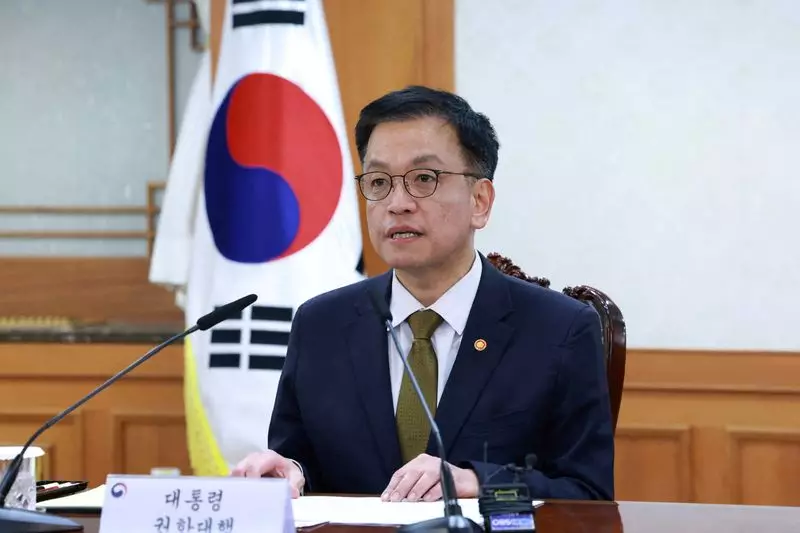The recent inauguration of U.S. President Donald Trump has sparked a renewed dialogue about the future of relations between South Korea and the United States. Acting President Choi Sang-mok has expressed optimism for a more reciprocal bilateral relationship under the Trump administration, emphasizing the need for effective policy cooperation. This is particularly crucial for South Korea, an economy that occupies a significant position in the Asia-Pacific region. As both nations navigate through the complexities of their alliance, the dynamic is undeniably influenced by political events on either side of the Pacific.
Choi, who also serves as the finance minister, has been at the helm since December 27, steering South Korea through one of its most tumultuous political climates. His immediate focus on reaching out to Trump suggests a desire for quick stabilization in diplomatic ties. With previous engagements being limited – particularly after the controversial impeachments of key political figures in South Korea – the urgency to establish a friendly rapport with the U.S. has become paramount.
The shared values that have historically defined the Korea-U.S. alliance are now being emphasized more than ever. Choi’s invocation of the alliance’s motto, “We Go Together,” reflects a foundational aspect of the relationship — mutual interests fostered through collaborative endeavors. Amidst political unease in South Korea, there is an awareness that maintaining a unified front is essential for navigating potential challenges from both domestic and international fronts.
Choi’s proactive stance is, however, juxtaposed against a backdrop of challenges, notably the absence of higher-level interactions between South Korean leaders and U.S. counterparts following Trump’s election victory. The diplomatic scene was notably marked by the presence of South Korean Ambassador Cho Hyun-dong at the inauguration, a stark contrast to the engagement levels of other nations like China and Japan, which showcased their high-ranking officials. This disparity can be seen as a disadvantage for South Korea as it steps into this new phase of diplomacy.
Economic considerations will play a significant role in shaping the future landscape of South Korea-U.S. relations. As Choi pointed out, the South Korean government is committed to reviewing Trump’s proposed policies — particularly concerning trade tariffs and electric vehicles — which could decisively impact South Korea’s economy. The nation achieved a remarkable trade surplus with the U.S. in 2024, but it raises concerns that the new administration might introduce protective measures that could alter this dynamic.
Moreover, the ongoing discussions regarding defense cost-sharing for U.S. troops stationed in South Korea add another layer of complexity. President Trump has consistently urged South Korea to increase its financial contribution to the presence of American military personnel tasked with countering North Korean threats. While a five-year agreement was secured prior to the November elections, the potential for renegotiation lingers, reflecting the unpredictable nature of U.S. domestic policy.
Financial markets in South Korea have responded swiftly to the implications of these anticipated policy changes. The KOSPI index, which initially saw gains, quickly reversed course following Trump’s comments regarding potential tariffs on imports from neighboring countries. This has raised apprehensions among South Korean corporations concerning their operations and investments abroad.
Particularly vulnerable are industries like electric vehicles and batteries, where significant South Korean investments are at stake. As demonstrated by the immediate drop in stock values of firms like LG Energy Solution, the market is keenly aware of the global impacts of U.S. trade policy. However, sectors associated with shipbuilding have shown resilience, indicating potential avenues for growth and collaboration under the new administration.
As South Korea grapples with its domestic political situation and external pressures from U.S. policies, the future of its relationship with the United States remains uncertain yet laden with potential. The call for cooperative engagement by Acting President Choi reflects an understanding of the need for strategic diplomacy to navigate a fraught political landscape.
Through careful policy analysis and proactive communication, South Korea can work towards strengthening its position not only as a crucial ally of the U.S. but also as an influential player in the Asia-Pacific economic theater. Ultimately, how well South Korea manages its alliances and economic strategies in the wake of changing U.S. policies will determine the trajectory of their bilateral relations in the years to come.

